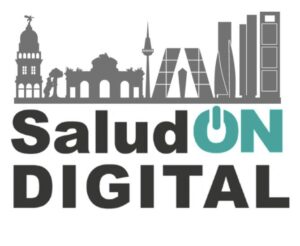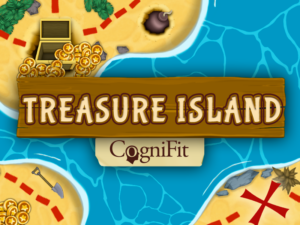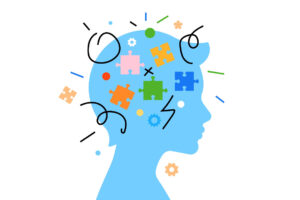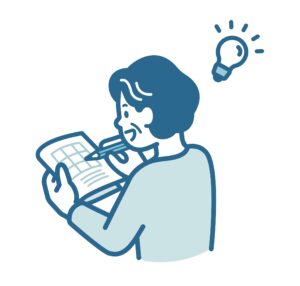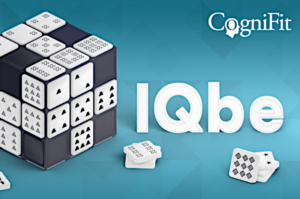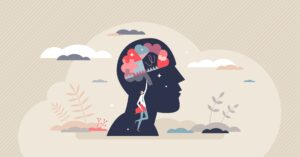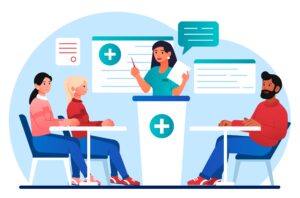
Emotional blockage: What is it and how to overcome it?
Have you ever felt so nervous about an important situation that you couldn’t react? The words aren’t coming out of your mouth? Felt paralyzed? Have you felt like you can’t get over some aspect of your life? Do you feel trapped or that there is no way out? Maybe you might have an emotional blockage. Find out what is an emotional blockage, its symptoms, functions, treatments, and more.

Emotional blockage and emotions
Emotions are part of us and are a response of our physiological system to situations or events both internal and external. All human beings experience emotions, in greater or lesser intensity and in a more adjusted or less adjusted way. Emotions affect our learning, motivation, behavior and communication with others.
When we are born we already have a wide range of experience and emotional expression called innate emotions. Among these are joy, sadness, anger, and disgust.
Based on these innate emotions and throughout our human experience, we are always broadening our emotional range, including emotions such as guilt, resentment, trust, jealousy. That is why emotional education is so important from an early age, to learn to manage them with the different situations life throws at us. All emotions have their function:
- Sadness: its function is the withdrawal of oneself in order to assimilate the situation and recover energy to establish changes in the future.
- Anger: its function is making decisions about the situation or person who may be hurting us, mobilizing energy to change that situation. For example, if our partner has hurt our feelings, we get angry which in turn aids our partner to readjust their behavior so as not to make us feel this way, or it would cause us to move away so that we no longer feel that negative emotion.
What is an emotional blockage?
An emotional blockage is a defense mechanism of our brain that prevents us from feeling emotions normally. It is a very unpleasant feeling that prevents us from moving forward and at the same time prevents us from thinking clearly and affects our daily actions. Not being able to think clearly, not knowing what to say, or being confused can be some indicators of emotional blockage.
Everyone at any given time in their lives has gone through an emotional blockage, and most of the time it is difficult to manage. This emotional blockage does not have to affect all areas of our lives but it may be affecting cognitive skills, emotions, and behavior of a specific area such as work, friendship, family or love.
Symptoms of an emotional blockage
Signs that we might be experiencing an emotional blockage are:
- Avoiding people or social situations. For example, avoiding situations because you are scared of how to act or what to say. This is usually linked to situations similar to which generated the emotional blockage in the beginning.
- Increase in anxiety or stress levels the day before different events.
- Lack of motivation that lasts for a long time and affects different areas of our lives.
- Feeling negative emotions with greater intensity than before. For example, feelings like envy, jealousy, criticism, etc.
- Worrying about different areas.
- Difficulty making decisions.

Functions of Emotional Blocking
An emotional blockage is activated in certain situations to cushion the impact of a negative situation or event that can be very painful for us.
In reality, it is a defense mechanism to protect our minds from what we might feel in that situation. Therefore, the mechanism blocks part of this emotion, allowing us to continue living with a certain normality in the other areas, and allows us to accept little by little what has happened in order to adjust ourselves again to the situation.
The emotional blockage allows us to take our time to process little by little the negative situation.
On the one hand, an emotional blockage is a positive mechanism because it protects us from something considered “dangerous” by our brain. During the emotional blockage, the person adapts to reality and puts starts putting into practice resources on how to manage the situation. This mechanism helps the person learn to manage other similar situations in the future.
An emotional blockage is activated especially in the event of sudden situations, which could not be foreseen, then the brain to protect itself from the stress that all this entails sets it in motion a cushion for the emotional pain.
Situations that activate an emotional blockage
Situations that trigger this emotional blockage are often negative or traumatic. They are stressful situations that the person is not used to dealing with or has no coping skills for it. For example:
- Traumatic experience: accident, rape, assault or attack, infidelity.
- The sudden death of a loved one.
- Breaking up or loss of a partner.
- Dismissal or change in employment status.
- Diagnosis of a serious or chronic illness.
- Unexpected change of city.
We are not only emotionally blocked by negative events, but also positive. In the face of some good news that we did not expect, we also need some time to get used to the idea and assimilate the news. For example news of a pregnancy, promotion at work, a surprise visit, etc.
Positive changes can also be a shock for us to take in, not only what it would mean for our lives but if our dreams come true, etc. This emotional blockage is positive in order to gather your thoughts and process what changes might come to your life, whether those are positive or negative.
Is an emotional blockage a problem?
An emotional blockage becomes a problem when it remains over time and begins to affect us in other areas that it didn’t previously. It becomes a problem when it begins to hinder our goals and life dreams.
By prolonging the emotional blockage over time without actually putting the emotional work it takes to process the situation, the person will begin to feel pain without being able to express it. The person will also experience other emotions disproportionately such as anger, sadness or guilt. It starts to become part of our day to day life and the situation starts repeating itself in our minds, affecting our concentration, cognitive skills, emotions and social skills.

At an extreme level, the emotional blockage can become so intense it can start affecting our physical health, and we start developing diseases. Some diseases are stomach ulcers, gastritis, skin conditions, etc.
The consequences of maintaining an emotional blockage for longer than necessary are:
At the behavioral level
- Substance addictions (alcohol, antidepressant, etc.), which would worsen the emotional situation.
- Increased experience of negative emotions at extreme levels such as anger or resentment.
- Devastating consequences on our self-esteem.
- Limitation of our social skills (loss of social ties, separation from family and friends, etc).
In our health
- Psychosomatic illnesses: physical pains and digestive disorders.
- At a more extreme level, we find stomach ulcers, skin problems, asthma, and colitis.
- Impairment of the immune system causing especially autoimmune diseases.
Treatment for Emotional Blockage
To overcome an emotional blockage it is advisable to see a therapist. This does not mean that we cannot try it ourselves, but if after some time (it’s different for every situation) the emotional blockage persists it is more advisable to go to a therapist. The therapist will work on regulating our emotional expression in order to unblock the emotional blockage.
The treatment is usually a Cognitive Behavior Therapy focused on both cognitive and emotional level at first, because by improving those levels, as a consequence would also improve behavioral. Behavioral work is sometimes also necessary to speed up the recovery process.
The first step in the therapeutic process will be to become aware of the existence of this emotional blockage and investigate the cause or causes that may have originated it and other events that have been able to maintain and prolong it over time.
Cognitive treatment of the emotional blockage
To work on the emotional blockage, the therapist will try to work on the patient’s cognitive distortions that might be helping maintain it, even if this might be painful.
Adjusting these cognitive distortions help create more effective trains of thought and less painful ones. Many of the distortions found in these cases are about one’s own emotional experience, such as “I have to be strong and strong people are not afraid”. In this case, we would focus on accepting that the belief of being strong is not “the absence of fear”, but adjusting it to reality it would be “despite feeling fear, I will make decisions and assume consequences”.
Emotional treatment of the emotional blockage
On an emotional level, the focus would be on emotional re-education and learn to feel emotions again, both negative and positive.
Emotional self-regulation, emotional expression and evaluating emotional situations are also aspects that the therapist will help us evaluate for further situations.
The therapist will also help us develop greater emotional intelligence and the areas that integrate it.
“The world breaks everyone and afterward many are strong at the broken places.” Ernest Hemingway.
With therapy, you will be able to center your emotions and express them accurately, as well as learn to cope with similar situations avoiding another emotional blockage.
Another important aspect is the capacity to develop empathy, so as to lean on people in case another emotional blockage happens and be able to ask for help.
Behavioral treatment of the emotional blockage
It is not always necessary to work in this area in an emotional blockage, but when it is done it would focus on planning our routine to carry out activities that make us feel positive emotions. Experiencing more positive emotions helps to unblock other emotions, helping us process events better.
The whole process would always be about accepting the traumatic experience, finding a real meaning to it and integrating it into our life story. When we speak of acceptance we refer to accepting the experience as it is, whether it is pleasant or unpleasant, accepting the situation as something natural that is not always under our control.
The patient will learn to see negative experiences not as something horrible to run away from, but as part of what we are going to experience in our lives. Resigning control would make us accept emotional reactions such as crying and experience them as they are, thus being functional.
Have you suffered any emotional blockages? Leave your comment.
This article is originally in Spanish. This translation is done by Alejandra Salazar.


